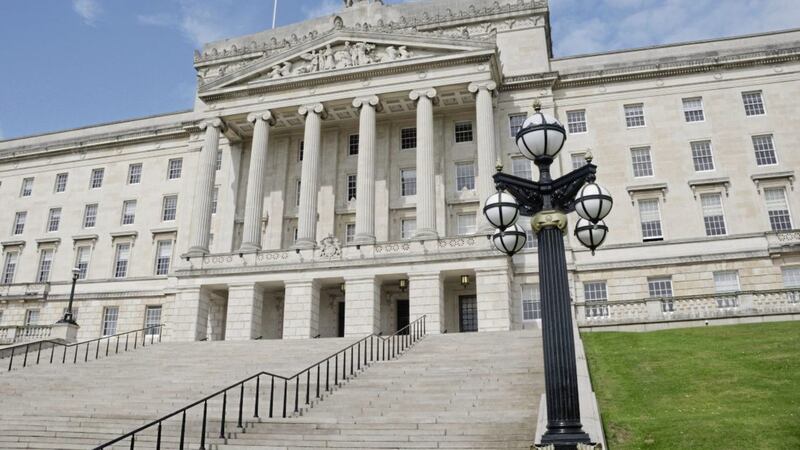Let’s focus on the living
history belongs in books
One of our family heirlooms is a bodhrán drum which was beaten within an inch of its life at seisiúns the length and breadth of Ireland by my father.
He would have loved one of the drums fashioned by Malachy Kearns whose showroom in Roundstone was a place of pilgrimage any time we were in Connemara. But times were hard in the 1970s and money was tight.
When he wasn’t playing away on his penny whistle, he beat out the rhythms of jigs and reels on a pair of bones rescued from the pressure cooker. Irish short-rib had an afterlife as a music-maker.
He worked in Goodyear, until the laws of economics put paid to its sojourn in Craigavon. One of his workmates was a member of a pipe band.
Dad liked music - full stop - and often as children we’d go up the town with him to hear the bands on the Twelfth. Many of those tunes are an essential part of Ireland’s musical tradition.
I don’t know the exact sequence of events, but his mate slipped him the torn skin of a Lambeg drum and dad married it with a cheap garden sieve, stripped back to its frame. The humble little bodhrán that emerged was every bit the measure of its Roundstone cousins.
I think about that small act of union often when the thorny subject of Irish reunification rears its head; when republicans lose the run of themselves with banners saying ‘England Get Out of Ireland’; and when unionists throw a hissy-fit at the sight of young people wearing Gaelic football shirts.
We are in another of those paroxysms at the moment.
It doesn’t help that much of the debate is now played out on social media – platforms that force people to the extremes. It’s not that easy to express nuance in 280 characters, though #BeKind does it in seven.
It matters little where, in the history of this place, you draw your baseline – the Norman invasion in 1169, the plantations in the sixteenth century, the Battle of the Boyne, the Act of Union, the Easter Rising, partition, the Troubles. Each and every side can nourish their sense of victimhood from the injustices perpetrated on them by others.
In no way would I want to disrespect the sense of loss felt by those whose loved ones have been killed or maimed, or those who have suffered themselves. But there comes a point when we must move on.
It is all too easy for politicians, their supporters, and the commentariat to cloak themselves in blankets woven from the hurt of previous generations; and to use the past to excuse the present.
A radical thinker in the first century AD said: “Let the dead bury their own dead.”
Harsh as it may sound, Jesus had a point. We need to move on, we need to leave history to historians and their books, we have to find a way to stop reliving it.
Let us begin by assuming the best possible motives in others rather than demonising them.
Our young people are passionate about sport, and by the feeling of belonging their shirts give them. There is no threat in a Down or a Rangers or a Celtic or a Linfield shirt – unless you choose to perceive one.
There is no threat in someone espousing the cause of Irish unity, or retaining the link with Great Britain, unless you frame their beliefs in that way.
There is no benefit for unionism in trashing Queen’s University as a ‘cold house for Protestants’, which it demonstrably is not; nor is there succour for republicans in blaming England for all our woes – many are of our own making.
It’s all too easy to blame others, much harder to do what we need to do ourselves to turn things around.
The storm of history has beached us where we are now – unionist and nationalist, planter and Gael, conformist and non-conformist. The storm has passed, now is the time to rebuild. To walk in one another’s shoes, recognising that our journey is a common one.
The goat skin may no longer be fit to be a Lambeg, but it can still beat out a tune that celebrates our common heritage.








